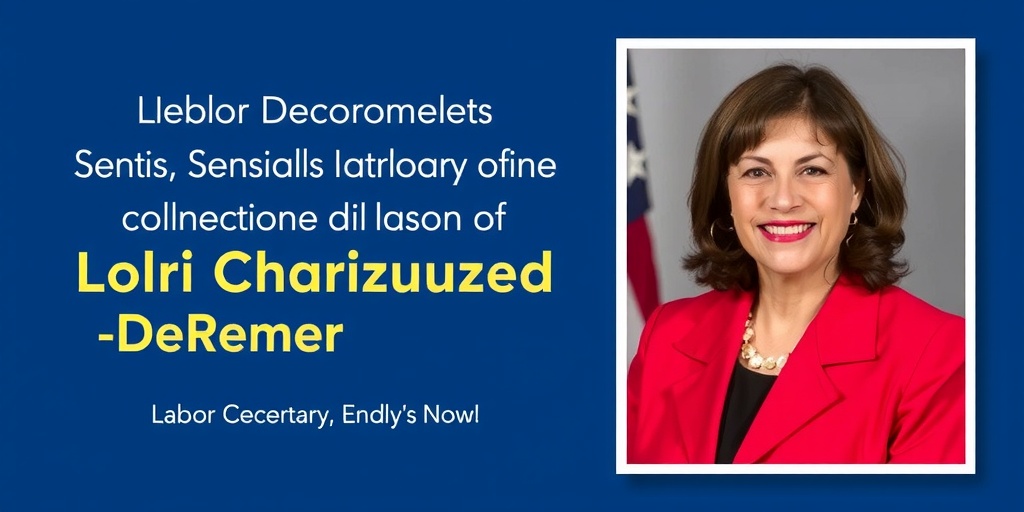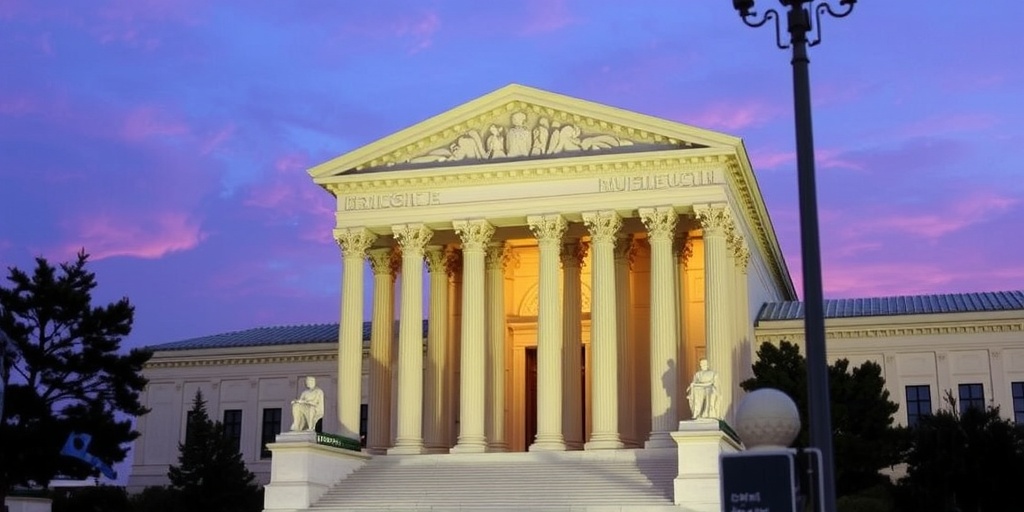Now Reading: Senate Confirms Lori Chavez-DeRemer as Labor Secretary
-
01
Senate Confirms Lori Chavez-DeRemer as Labor Secretary
Senate Confirms Lori Chavez-DeRemer as Labor Secretary

Lori Chavez-DeRemer Confirmed as Labor Secretary amid Party Skepticism
On Monday, Lori Chavez-DeRemer, a Republican and former congresswoman, was confirmed by the Senate to lead the Labor Department in the Trump administration. The vote, which resulted in a decisive 67-32 split, highlights the mixed reception of her nomination that was shaped by her past support for labor unions and her efforts to build bipartisan relationships.
Chavez-DeRemer’s appointment as Labor Secretary places her at the helm of enforcing federal labor laws, overseeing workplace safety standards, and managing pay regulations. Additionally, she is tasked with the critical role of collecting and disseminating labor market data, which is vital for understanding economic conditions affecting workers.
The confirmation vote saw a notable combination of support and opposition from both sides of the aisle. While she garnered votes from key Democrats, including Amy Klobuchar of Minnesota and Elissa Slotkin of Michigan, several prominent Republicans opposed her nomination. Senators Rand Paul and Mitch McConnell, both of Kentucky, stood firmly against her, reflecting lingering concerns about her labor-friendly record.
Chavez-DeRemer’s path to confirmation began with a Senate subcommittee vote last month, where she received approval in a narrow 14-9 decision. This vote demonstrated a mix of bipartisan collaboration, as some members crossed party lines to back her nomination. During her confirmation hearings, Chavez-DeRemer faced intense scrutiny regarding her history of supporting labor unions and collective bargaining rights, which have historically been contentious issues within the Republican Party.
During her time in Congress, Chavez-DeRemer distinguished herself as a co-sponsor of the Protecting the Right to Organize Act (PRO Act), a significant piece of legislation aimed at enhancing workers’ rights to organize and engage in collective bargaining. The PRO Act, championed by Democrats, represents a broader push for labor reform, yet it has not seen success in terms of passage. Chavez-DeRemer’s willingness to support this bill positioned her as one of the rare Republicans championing labor rights, simultaneously earning her skepticism from more conservative colleagues.
Despite her electoral defeat in November, where she lost her re-election bid in Oregon, Chavez-DeRemer’s career has seen her ascend to a notable Cabinet position under President Trump, who reportedly chose her for the role after discussions with Teamsters President Sean O’Brien. O’Brien’s endorsement underscores Chavez-DeRemer’s unique position as a Republican viewed favorably by labor leaders, a rare balance in contemporary political dynamics.
At her confirmation hearing, Chavez-DeRemer made efforts to distance herself from some aspects of the PRO Act, aligning her narrative more closely with Trump’s overarching agenda. She reassured senators of her commitment to implement the administration’s priorities, which at times have diverged from traditional Republican stances on labor issues. This strategic positioning may have been an attempt to secure support from conservative lawmakers who view Trump’s policies as critical to their party’s identity.
Nevertheless, her nomination faced significant hurdles from staunch conservatives. Senator Rand Paul repeated his opposition during both the subcommittee vote and the final Senate vote, indicative of ongoing divisions within the party regarding labor issues. McConnell’s opposition is particularly telling, as he has consistently voted against several of Trump’s nominee choices, showcasing a potential fracture among Republicans regarding the dynamics of Trump’s influence on party leadership.
Chavez-DeRemer’s confirmation as Labor Secretary marks a significant moment in the current political landscape, reflecting both the complexities of labor relations and the ongoing negotiations within the Republican Party. Her leadership role will not only impact the enforcement of labor laws and workplace rights but also serves as a barometer for the evolving relationship between the Republican Party and organized labor.
As the new Labor Secretary, Chavez-DeRemer faces the daunting task of navigating the intricacies of labor policy amidst a backdrop of political controversies and divided opinions. With key priorities such as workplace safety and fair pay at the forefront, how she approaches these challenges will be significant as both labor advocates and conservative lawmakers closely monitor her performance in this pivotal role. The coming months will prove critical as she seeks to balance the expectations of her party while also addressing the needs of workers across the country.
Stay Informed With the Latest & Most Important News
Previous Post
Next Post
-
 01New technology breakthrough has everyone talking right now
01New technology breakthrough has everyone talking right now -
 02Unbelievable life hack everyone needs to try today
02Unbelievable life hack everyone needs to try today -
 03Fascinating discovery found buried deep beneath the ocean
03Fascinating discovery found buried deep beneath the ocean -
 04Man invents genius device that solves everyday problems
04Man invents genius device that solves everyday problems -
 05Shocking discovery that changes what we know forever
05Shocking discovery that changes what we know forever -
 06Internet goes wild over celebrity’s unexpected fashion choice
06Internet goes wild over celebrity’s unexpected fashion choice -
 07Rare animal sighting stuns scientists and wildlife lovers
07Rare animal sighting stuns scientists and wildlife lovers





















